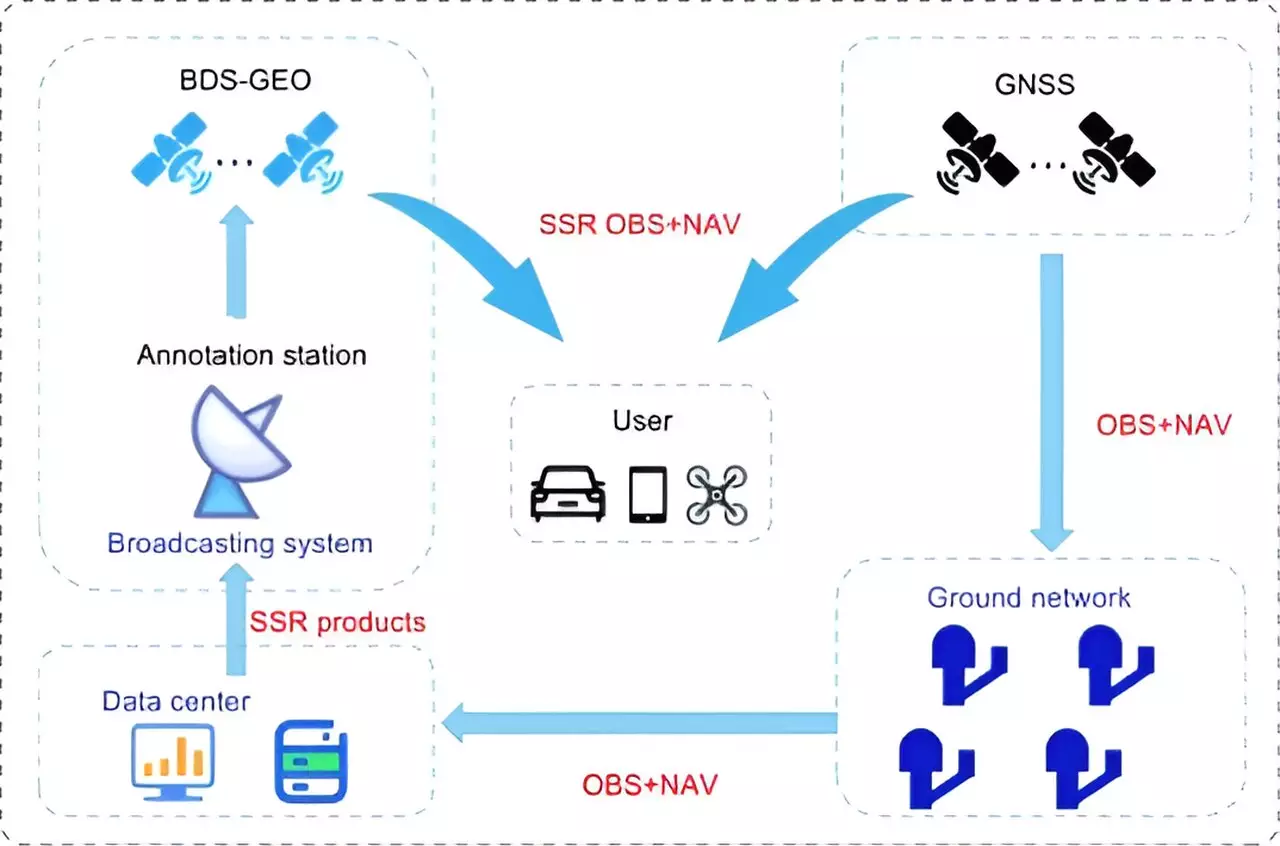The BeiDou Navigation Satellite System (BDS) is currently undergoing a substantial upgrade to cater to the growing demand for high-precision positioning in various sectors. The system is set to offer decimeter-level accuracy within minutes, a vast improvement over its existing capabilities. This enhancement is crucial for cutting-edge technologies like autonomous driving, robotic navigation, and smart city infrastructure, all of which rely heavily on accurate and reliable location data for efficient operation.
While traditional systems like the Global Positioning System (GPS), GLObal NAvigation Satellite System (GLONASS), and Galileo have set high standards in the field of satellite navigation, they still encounter challenges such as limited regional coverage and lengthy convergence times. These issues highlight the urgent need for advanced navigation satellite systems to address the evolving requirements of modern applications.
Researchers from the Beijing Institute of Tracking and Telecommunication Technology, along with the Shanghai Astronomical Observatory and Wuhan University, have recently published a study detailing the high-precision services offered by the BeiDou system in the journal Satellite Navigation. The study focuses on the PPP-B2b of BDS-3, which can achieve decimeter-level accuracy within 14 minutes. Despite these advancements, BeiDou still falls behind international competitors like Galileo’s High Accuracy Service (HAS) and the Quasi-Zenith Satellite System’s (QZSS) Centimeter-Level Augmentation Service (CLAS) in terms of regional coverage and convergence time.
Proposed Solution: LEO Integration
To overcome these limitations, the researchers propose a multi-layer development framework that involves the incorporation of low Earth orbit (LEO) satellites. By introducing a LEO constellation comprising 288 satellites, BeiDou can enhance its positioning accuracy to better than 5 cm within approximately 1 minute. This integration not only improves global coverage but also significantly reduces convergence time, thereby positioning BeiDou as a frontrunner in high-precision satellite navigation.
Impact on Navigation Applications
Dr. Xingxing Li from Wuhan University emphasizes the significance of BeiDou’s high-precision services in meeting the growing demands of modern navigation applications. The integration of LEO satellites offers promising prospects for enhancing coverage and reducing convergence time, bringing the system closer to achieving real-time, centimeter-level positioning accuracy on a global scale. This technological advancement has far-reaching implications for various applications like autonomous driving, unmanned aerial vehicles, and smart device navigation.
The upgraded high-precision services of the BeiDou Navigation Satellite System represent a significant leap forward in the realm of satellite navigation. By addressing key challenges and leveraging advanced technologies like LEO satellite integration, BeiDou is poised to lead the way in providing highly accurate and reliable positioning services for a wide range of applications. This evolution marks a pivotal moment in the development of global navigation satellite systems, solidifying BeiDou’s position as a premier provider of high-precision navigation solutions.


Leave a Reply